by William Burns
When Al Sharpton demanded, three years ago, that the funding for the Jefferson Memorial’s upkeep be cut off, people laughed. But they’re not laughing now. Actually, they’re still laughing, but now it’s more of a nervous chuckle in dismal expectation of what’s to come. First it was Robert E. Lee, then it was Christopher Columbus, and now it’s old TJ himself.
The frenzy to purge, legally or illegally, every last vestige of America’s past of slavery has reached new heights in the last weeks, but recent events would suggest that the worst is yet to come. On May 31, a monument to Thomas Jefferson in Birmingham was set on fire by rioters. On June 11, a statue of Thomas Jefferson on the campus of William and Mary was defaced, and attempts were made to topple it. On June 14, a Jefferson statue in Portland was ripped from its graffitied pedestal by protesters and cast to the ground. The University of Missouri has been resisting demands from student protesters to remove a statue of Jefferson, while a statue in Decatur, Georgia, has successfully been removed legally. In this unbridled surge of wokeness, not even the author of the Declaration of Independence is safe.
So who is this wicked human being whose memory college students feel justified and even obligated to disgrace? Of what crime could this villain possibly be guilty that the armies of God should march, with such righteous anger, to dishonor his name and besmirch his legacy?
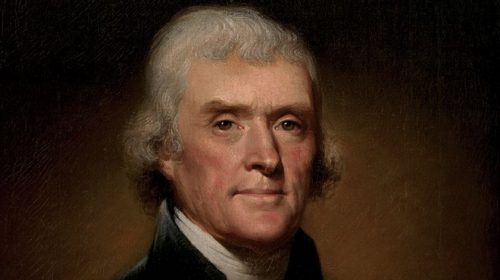
Like Socrates in Plato’s Apology, one must consider not just one accusation but two — the one nominal and the other real. The nominal accusation against Thomas Jefferson is that he owned slaves and fathered children by one of them. The real accusation against Jefferson is everything else he did. There are few who would admit this, but it really should come as no surprise. Jefferson was the embodiment of classical liberalism, a philosophy disdained by modern progressives. In all his achievements, Jefferson adopted, influenced, and practiced the philosophy of classical liberalism, taking every opportunity to advance the principles of republicanism, limited government, and individualism. Let us take a moment to examine these accomplishments, for which progressives hate him so much.
Born in 1743, Thomas Jefferson was, in every way, a child of the Enlightenment. He attended the college of William and Mary, where he was introduced to the ideas of Isaac Newton, John Locke, and all the cutting-edge political and natural philosophy of the Enlightenment. After graduating, Jefferson practiced law and served in the Virginia House of Burgesses. In both of these roles, he endeavored to bring reform to the institution of slavery, which he saw as unjust on account of his belief in the natural rights of all men. In 1776, he authored the Declaration of Independence, setting the United States on its course to becoming a sovereign nation, freed entirely from Britain’s tyrannical rule.
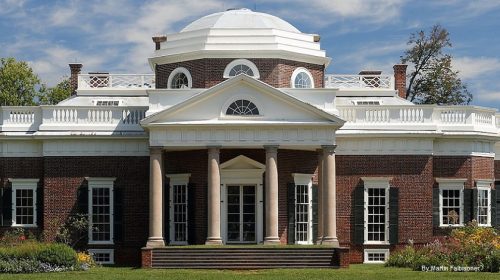
Jefferson was then elected to the Virginia House of Delegates, where he advocated principles of religious toleration and helped draft the Virginia state Constitution. Afterward he served briefly as the governor of Virginia, where he continued to promote freedom of religion. He was then elected to the Congress of the Confederation, which appointed him, in 1784, to serve as the United States’ ambassador to France. Upon his return, Jefferson was appointed as President Washington’s secretary of state under the new Constitution. With the help of James Madison, Jefferson advocated the ideals of limited government and republicanism that would come to constitute the basis for the Democratic-Republican Party.
Jefferson also served as John Adams’ vice president before being elected to the office of president himself in 1800. As president, Jefferson established the U.S. Military Academy, fought the Barbary pirates, purchased the Louisiana Territory, commissioned the pioneers of the American West, promoted the equal rights of Native Americans, and advocated the assimilation of the Indian tribes. Out of respect for Washington, Jefferson did not seek a third term as president, but instead retired to Monticello. Late in life, Jefferson bequeathed one last gift to future generations; he established the University of Virginia, an institution founded to preserve the Enlightenment values of reason, education, and free exchange Jefferson so highly esteemed.
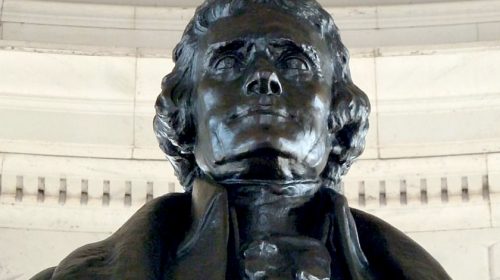
Thomas Jefferson also owned slaves throughout his life, as was common in his time. From his writings on the natural rights of man, it would seem that Jefferson indeed knew that slavery was wrong but failed to hold himself to that standard of justice. How could he be such a hypocrite, condemning slavery with his words but practicing it with his actions? As it turns out, free labor is really hard to turn down, and despite his virtues, Jefferson remained morally weak for his failure to do so. Jefferson deserves blame for this moral weakness, but in proportion to the virtue, wisdom, excellence, and accomplishments of the rest of his life.
While Jefferson the slaveowner is given plenty of airtime in these current protests, little is said of Jefferson the delegate, Jefferson the representative, Jefferson the governor, Jefferson the ambassador, Jefferson the secretary of state, Jefferson the vice president, Jefferson the president, or Jefferson the founder of UVA. But however much fuss they make about Jefferson’s slave ownership, progressives’ real disdain for the man lies not just in his sins but also in his accomplishments. For, in his long life of public service, Jefferson remained committed to political principles now detested by his present accusers.
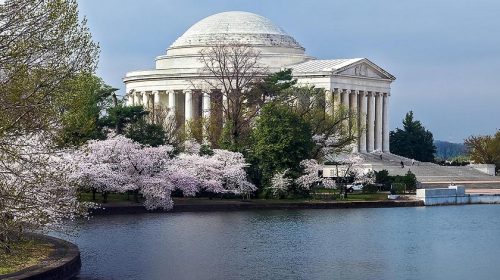 The principles of classical liberalism championed by Jefferson are absolutely antithetical to the liberalism esteemed by progressives today. Where the former values limited government, individualism, and civic virtue, the latter values expansive government, group action, and social justice. It is Jefferson’s political philosophy that progressives abhor most of all, and it is because of his philosophy that radicals now seek the complete removal of his image, legally or illegally. The physical object of their assaults is the image of Thomas Jefferson, but their true adversary is the classical liberalism he represents.
The principles of classical liberalism championed by Jefferson are absolutely antithetical to the liberalism esteemed by progressives today. Where the former values limited government, individualism, and civic virtue, the latter values expansive government, group action, and social justice. It is Jefferson’s political philosophy that progressives abhor most of all, and it is because of his philosophy that radicals now seek the complete removal of his image, legally or illegally. The physical object of their assaults is the image of Thomas Jefferson, but their true adversary is the classical liberalism he represents.
Don’t be fooled into thinking this impending crusade against the third president is only about slavery. Today’s progressives are attempting to erase the memory of a liberalism directly opposed to their own. Their aim is nothing less than to purge from the public eye the Enlightenment ideals of individualism, limited government, and civic virtue that America was built on. Their vision is an America divorced from its founding, classically liberal values and rebuilt upon their own new breed of liberalism, one directly opposed to that of Jefferson and of the American Revolution. So let progressives think twice before they unchain this earth from its sun, because whatever mistakes Jefferson may have made, it was upon his philosophy, not that of modern progressives, that this nation was established.
– – –
William Burns is a participant in the Young Writers Program at The American Spectator. He attends Baylor University, where he is studying math, economics, and statistics. He enjoys reading old books and writing about classically liberal ideas.
Photo “Thomas Jefferson Memorial” by Bob CC2.0.

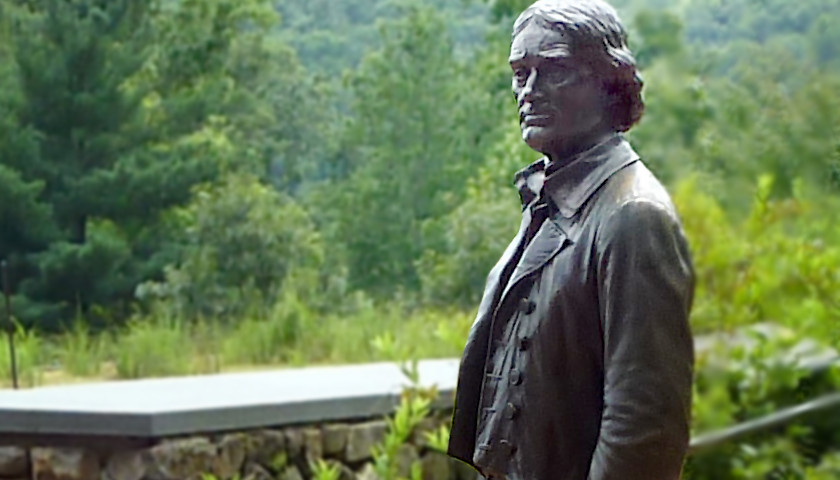
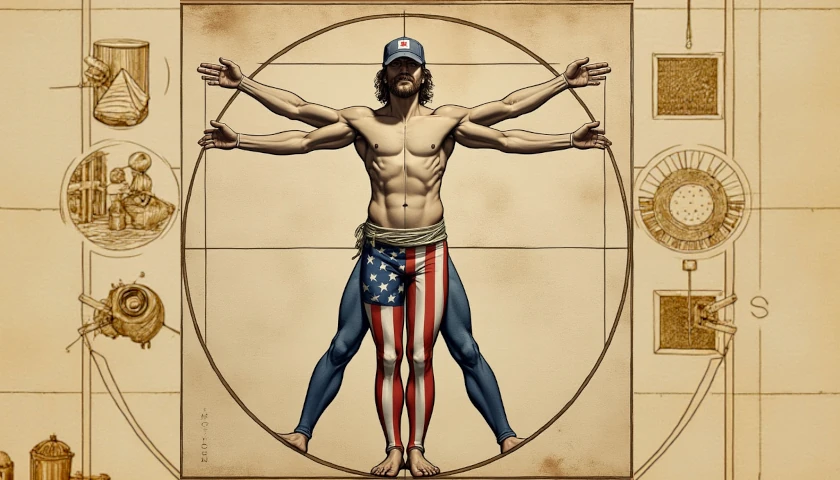
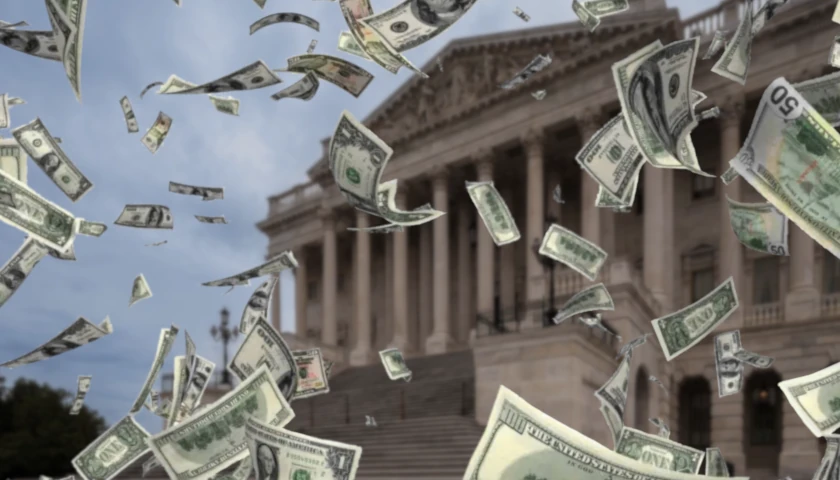

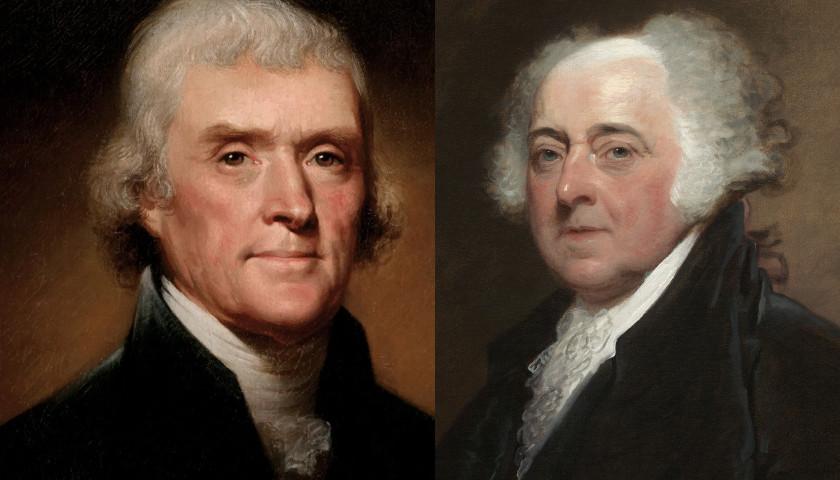
No you people stand for the tyranny in the minds of men Thomas Jefferson does not.
The author writes with remarkable confidence about what “they”–meaning in large part Black people whose ancestors were enslaved by whites like Thomas Jefferson–detest about Jefferson. At first, I thought that the writer must be indulging in a rich diet of “alternative facts” because he does not offer one shred of evidence to back the claim that the real movies of the protesters are disingenuously concealed by their stated motives. Then it occurred to me that perhaps this columnist is gifted with the miraculous power of mind-reading so, although he can steal inside the minds of some of the members of Black Lives Matter to see their sinister secrets, he can only report back what he found there and the rest of us have to take his word for it, like explorers hundreds of years ago returning from exotic, far-away places and telling stories of dangerous dragons and sea monsters.
This excellent article reminds me back when I was a youngster and we had a Democratic President who was a classical liberal:
Extract from John F. Kennedy’s Remarks at a Dinner Honoring Nobel Prize Winners of the Western Hemisphere
April 29, 1962
“I think this is the most extraordinary collection of talent, of human knowledge, that has ever been gathered together at the White House, with the possible exception of when Thomas Jefferson dined alone. Someone once said that Thomas Jefferson was a gentleman of 32 who could calculate an eclipse, survey an estate, tie an artery, plan an edifice, try a cause, break a horse, and dance the minuet.”
Thank you sir. Well written. But as George Bush and the bunch were giving us Homeland Security and The War on Terror, I joked to my attorney, David Raybin, a native of Staunton, VA ‘Yeah, they will eventually tear down Monticello and erect a Threat Fusion Center.’ Looks like my predictions are close to accurate.
Insightful! Excellent article! Particularly the last two paragraphs!